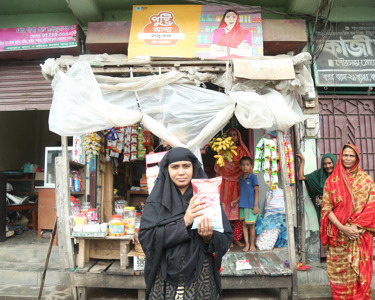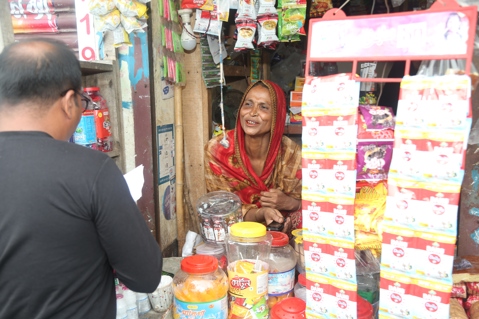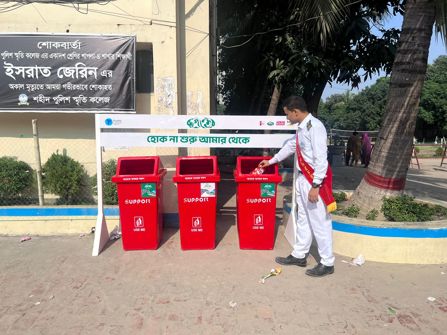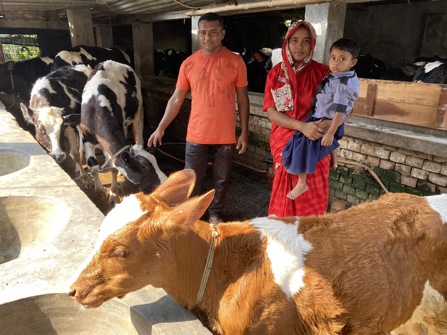There is great potential for more Bangladeshi women to enter the labour market – for Bangladesh’s economy as well as for the relatively many women who currently don’t work. In a partnership with Bopinc, a global expert on distributing to low-income consumers in rural areas, we created the Pushti Ambassador Partnership to show that potential.
In a country where malnutrition is prevalent, a new squad of determined female microentrepreneurs - Arla’s Pushti Ambassadors - are partnering up to help. They are working hard in their shops to give access to affordable dairy nutrition to families in rural parts of the country with Dano® Daily Pushti milk-powder sachets. While inspiring people to have more nutritious food habits, these Pushti Ambassadors are also securing a better income that helps lift them out of poverty.
The partnership leverages Arla Bangladesh’s existing distribution network and builds on Bopinc’s extensive expertise within distributing food and other types of products to those who need them.



